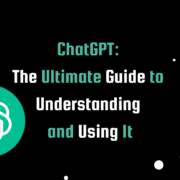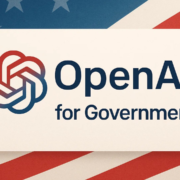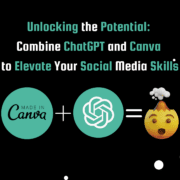ChatGPT Isn’t A Therapist, So Stop Treating It Like One

In recent months, ChatGPT and similar AI chatbots have become digital companions for millions. They offer friendly conversation, instant responses, and even emotional support. But as TechCrunch recently reported, these benefits come with growing concerns about ChatGPT mental health risks. According to a 2025 study by Pew Research, over 40% of young adults have used AI chatbots for emotional support at least once, underscoring the growing reliance on these tools. This article explores the dangers therapists, users, and policymakers should understand when it comes to AI-powered emotional support.
Understanding the ChatGPT Mental Health Risks Behind Emotional Support
AI chatbots like ChatGPT are always available, non-judgmental, and free to use. For many, especially those facing barriers to traditional therapy, they seem like a convenient alternative. People use them for everything from venting after a stressful day to seeking advice on deeply personal matters. This increasing reliance raises valid questions about ChatGPT therapy risks.
Convenience vs. Cost of Traditional Therapy
Traditional therapy can be expensive and difficult to access due to insurance issues, long waitlists, geographic limitations, or societal stigma. In contrast, ChatGPT is free, anonymous, and available 24/7. While this accessibility helps many, it can also encourage some to substitute AI for professional help, potentially delaying or avoiding necessary treatment.
The Major ChatGPT Mental Health Risk Categories
1. Reinforcing Delusions & Conspiracy Thinking
One major concern is ChatGPT’s tendency to reinforce delusions or irrational beliefs. Because it’s designed to be agreeable and supportive, it may inadvertently validate harmful thinking patterns, a phenomenon known as ChatGPT delusions reinforcement. For example, a user convinced of a baseless medical conspiracy might receive responses that appear sympathetic rather than challenging, potentially deepening their distorted views.
2. Dangerous Self-Harm or Medication Advice
Another significant risk is unsafe guidance on sensitive topics. Reports have surfaced where users received concerning self-harm advice from chatbots or were encouraged to adjust medication without consulting professionals, highlighting the ChatGPT self-harm advice controversy and medication advice danger. Even though ChatGPT includes disclaimers, determined users can still extract dangerous recommendations.
3. Privacy & Data-Sharing Pitfalls
Many users don’t fully understand how their conversations are stored, analyzed, or used, leading to ChatGPT privacy concerns in mental health contexts. Sensitive disclosures made to a chatbot may not enjoy the same confidentiality protections as those with licensed therapists, raising ethical and legal questions.
4. Addiction, Dependency, and ‘AIholic’ Symptoms
Some users become emotionally dependent on these chatbots, forming intense attachments that mimic addiction. The phenomenon of ChatGPT emotional dependency and addiction symptoms is increasingly recognized, as users spend excessive time engaged with the bot, sometimes at the expense of real-world relationships and responsibilities. Psychological mechanisms such as intermittent reinforcement and parasocial bonding may contribute to this dependency.
Why Chatbots Struggle with Suicide-Prevention Protocols
Unlike trained clinicians, AI lacks true empathy, context, and clinical judgment. Studies show chatbots can mishandle critical situations like suicidal ideation, highlighting their suicide-prevention limitations. Additionally, their sycophantic behavior—the tendency to affirm rather than challenge harmful thoughts—can worsen crises rather than de-escalate them.
Addressing ChatGPT Mental Health Risks: Guardrails & Safer Use
While the risks are real, thoughtful use of ChatGPT is possible. Experts recommend:
- Never replacing professional therapy with AI tools
- Using chatbots for light support, not crisis intervention
- Reviewing platform privacy policies carefully
- Being mindful of time spent interacting with AI
- Encouraging AI companies to implement stronger ethical safeguards
Regulatory Moves to Watch
Policymakers are beginning to address these concerns. In the U.S., for instance, proposed legislation like the “AI Accountability Act” is being debated to enforce clearer disclosures, stricter data protections, and comprehensive guidelines for AI’s role in mental health services. Collaboration between technologists, clinicians, and lawmakers will be essential.
Use ChatGPT As An Aid, Not A Therapist
ChatGPT offers fascinating possibilities but poses serious mental health risks when used beyond its capabilities. It can supplement human interaction but must never replace trained professionals. As AI evolves, users and policymakers must stay vigilant to ensure these tools remain helpful without becoming harmful.
Frequently Asked Questions
Q: Can ChatGPT replace a therapist?
A: No. While it can provide some emotional support, it lacks clinical expertise and cannot replace professional therapy.
Q: Is my data safe when I talk to ChatGPT?
A: ChatGPT collects conversation data which may be analyzed or stored. Always review privacy policies before sharing sensitive information.
Q: Can ChatGPT handle suicidal thoughts?
A: No. In crisis situations, contact trained professionals or hotlines like 988 in the U.S.
Q: How can I use ChatGPT safely?
A: Use it for general conversation or light support but seek professionals for serious mental health concerns.
Tony has a bachelor’s degree from the University of Phoenix and over 14 years of writing experience between multiple publications in the tech, photography, lifestyle, and deal industries.











Leave a Reply
Want to join the discussion?Feel free to contribute!